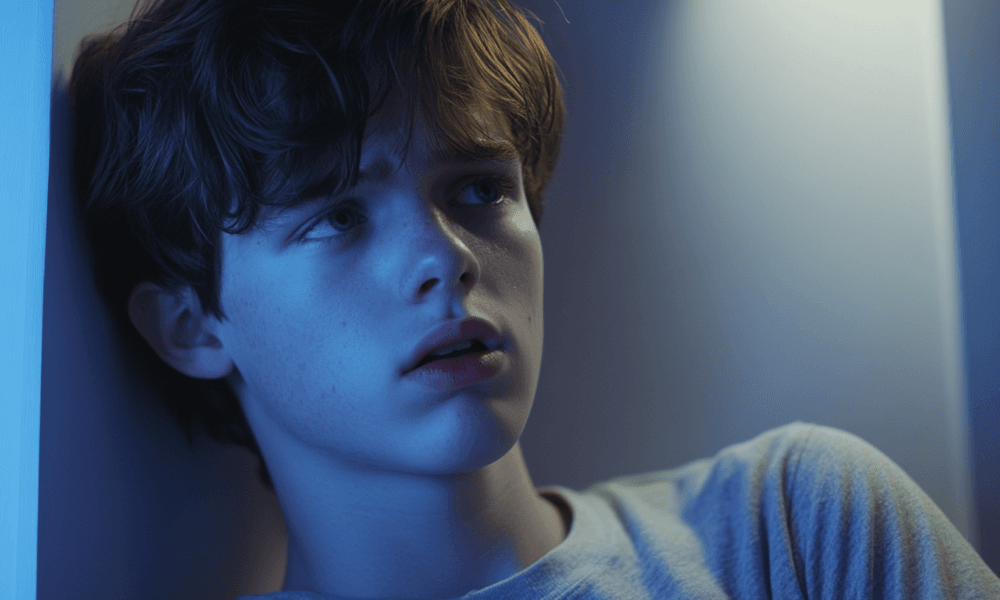Social Media’s Impact on Teen Health: A Growing Concern
In recent years, social media has become an integral part of daily life, particularly for teenagers. Platforms such as Instagram, TikTok, Snapchat, and others offer spaces for connection, entertainment, and self-expression. However, the increasing use of social media among teens has sparked growing concerns about its impact on their mental health and overall well-being. As teenagers spend more time scrolling through feeds, posting content, and interacting online, questions arise about the potential psychological effects and the long-term consequences of such behavior. In this article, we explore the link between social media and teen mental health, examine the negative impacts, and offer strategies for mitigating the harm.
The Growing Presence of Social Media in Teen Lives
Social media platforms have become a ubiquitous part of teenage life, with a majority of teenagers using these platforms daily. According to a 2022 report by the Pew Research Center, around 95% of teenagers in the United States have access to a smartphone, and approximately 90% of them report using social media platforms like YouTube, Instagram, and TikTok regularly.
Teens often turn to social media for various reasons, including maintaining friendships, expressing creativity, and finding support for their interests or challenges. While these platforms can offer positive opportunities for connection and growth, they can also expose teenagers to significant mental health risks, including increased levels of anxiety, depression, loneliness, and body image issues.
Related Image Prompt: A group of teenagers sitting together but focused on their smartphones, symbolizing the growing role of social media in their daily interactions.
The Psychological Effects of Social Media on Teens
Social media use can have a profound effect on the mental health of teenagers. The effects can be both positive and negative, depending on various factors, including the type of content consumed, the time spent on these platforms, and the individual teen’s personality. Below, we examine some of the primary negative psychological effects linked to social media use among teenagers.
1. Increased Anxiety and Depression
Studies have consistently found a correlation between social media use and increased levels of anxiety and depression among teenagers. Social media platforms often present idealized versions of people’s lives, creating a sense of inadequacy and competition. Many teenagers compare themselves to the seemingly “perfect” lives of influencers and peers, leading to feelings of inadequacy, self-doubt, and anxiety.
- Fear of Missing Out (FOMO): Social media platforms can create a phenomenon known as FOMO. Teens may feel anxious and left out when they see their friends posting about events or activities they were not a part of. This fear of missing out can lead to increased feelings of loneliness and depression.
- Cyberbullying: Social media can also serve as a breeding ground for cyberbullying. According to a report by the Cyberbullying Research Center, about 37% of teenagers have experienced cyberbullying, which can lead to severe emotional distress, anxiety, and depression.
2. Body Image Issues
Body image issues are a significant concern among teenagers, particularly among young girls, and social media often exacerbates these concerns. Platforms like Instagram and TikTok are filled with images of influencers and celebrities who often present unrealistic body standards, enhanced by filters, photo editing, and strategic angles.
- Unrealistic Beauty Standards: Exposure to images that portray unrealistic beauty ideals can lead to dissatisfaction with one’s own body. A 2019 study published in the Journal of Adolescent Health found that increased time spent on social media is associated with a greater likelihood of body dissatisfaction and disordered eating behaviors among teenagers.
- Use of Filters: The widespread use of filters and photo-editing tools can also have a negative impact on body image. Teens may feel pressure to present a curated version of themselves that aligns with social media beauty standards, further contributing to feelings of inadequacy and dissatisfaction.
3. Sleep Disruption
Social media use can also negatively impact teenagers’ sleep patterns, contributing to sleep deprivation and a host of associated mental health issues. Many teens report using their phones late at night, often staying up much later than intended to browse their feeds or interact with others.
- Blue Light Exposure: The blue light emitted by smartphones and other electronic devices can interfere with the production of melatonin, the hormone responsible for regulating sleep. This can make it harder for teens to fall asleep and stay asleep, leading to sleep deprivation and increased fatigue.
- Constant Connectivity: The desire to stay connected and respond to notifications can lead to disrupted sleep. Many teens report waking up during the night to check their phones, which can have negative effects on both the quality and quantity of their sleep.
4. Decreased Self-Esteem and Social Comparison
Social media often encourages social comparison, which can have a negative impact on teenagers’ self-esteem. When teens see curated images and posts highlighting the best moments of others’ lives, they may begin to feel that their own lives are inadequate in comparison.
- Highlight Reel Effect: Social media is often a “highlight reel” that showcases only the positive aspects of people’s lives. This can lead teens to believe that their peers are happier, more successful, and more attractive than they are, ultimately harming their self-esteem.
- Validation Through Likes: Many teenagers place significant importance on the number of likes, comments, and followers they have on social media. This reliance on external validation can negatively affect self-esteem, as teens may feel inadequate if they don’t receive the level of engagement they expect.
Addressing the Negative Impact of Social Media on Teen Health
While social media use presents several risks for teenagers, there are strategies that can help mitigate these negative effects and promote a healthier relationship with these platforms.
1. Encourage Digital Well-Being Practices
Digital well-being practices can help teenagers maintain a healthy balance between their online and offline lives. Encouraging teens to be mindful of their social media use and setting boundaries can promote better mental health.
- Set Screen Time Limits: Encouraging teens to set limits on their daily screen time can help prevent excessive use and reduce the negative impact on mental health. Many smartphones have built-in features that allow users to track and limit their screen time.
- Schedule Tech-Free Time: Establishing “tech-free” times during the day, such as during meals or before bedtime, can help teenagers disconnect and reduce their reliance on social media.
2. Promote Positive Content and Online Behavior
Encouraging teens to curate their feeds to include positive, uplifting content can improve their overall social media experience. By following accounts that promote body positivity, mental health awareness, and inspiring messages, teens can create a more supportive and empowering online environment.
- Unfollow Negative Influences: Teens should be encouraged to unfollow accounts that make them feel inadequate or contribute to negative self-comparisons. Instead, they can follow accounts that focus on self-care, education, or hobbies that they are passionate about.
- Be a Responsible Digital Citizen: Teaching teens about the importance of respectful online behavior and the consequences of cyberbullying can foster a safer online community. Encouraging empathy and kindness can help create a more supportive social media environment.
3. Foster Open Communication
Open communication between parents, caregivers, and teenagers is essential for addressing the negative effects of social media. By fostering an environment where teens feel comfortable discussing their online experiences, parents can provide support and guidance.
- Talk About Social Media Use: Parents should initiate conversations about social media, discussing both the positive and negative aspects of these platforms. This can help teens understand the potential risks and make informed decisions about their online behavior.
- Monitor Usage: While respecting privacy is important, parents can work with their teens to monitor social media usage and ensure that they are engaging with content that is healthy and positive.
4. Support Mental Health Resources
Access to mental health resources is crucial for teens who may be struggling with the negative impact of social media. Schools, communities, and families should work together to provide teens with the tools and resources they need to maintain good mental health.
- Counseling Services: Schools and communities should provide access to counseling services for teenagers who need support. Trained counselors can help teens develop coping strategies for dealing with the challenges they face online.
- Educational Programs: Educating teens about the impact of social media on mental health and providing them with tools to navigate these challenges can empower them to make healthier choices. Programs that focus on resilience, self-esteem, and digital literacy can be particularly helpful.
Conclusion
Social media has become an integral part of teenage life, offering opportunities for connection, creativity, and self-expression. However, it also poses significant challenges to the mental health and well-being of teenagers, including increased anxiety, depression, body image issues, and sleep disruption. By understanding the psychological effects of social media and implementing strategies to mitigate its negative impact, we can help teenagers develop a healthier relationship with these platforms.
Encouraging digital well-being practices, promoting positive content, fostering open communication, and providing access to mental health resources are essential steps toward supporting teenagers in navigating the digital world. By taking these steps, we can empower teens to harness the benefits of social media while minimizing its potential harm.




No Comment! Be the first one.